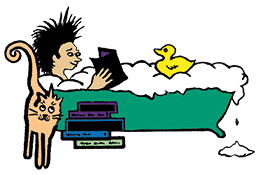Mindfulness Workbook for Addiction: A Guide to Coping with the Grief, Stress and Anger That Trigger Addictive Behaviors
Author(s): REBECCA E. WILLIAMS
Most addictive behavior is rooted in some type of loss, be it the death of a loved one, coming to terms with limitations set by chronic health problems, or the end of a relationship. By turning to drugs and alcohol, people who have suffered a loss can numb their grief. In the process, they postpone their healing and can drive themselves further into addiction.
The Mindfulness Workbook for Addiction offers readers an effective program for working through their addiction and grief with cognitive behavior therapy (CBT), dialectical behavior therapy (DBT), and acceptance and commitment therapy (ACT). Created by two psychologists who work for Veterans' Affairs, this mindfulness training workbook is effective for treating the emotion dysregulation, stress, depression, and grief that lie at the heart of addiction. No matter the loss, the mindfulness skills in this workbook help readers process their grief, determine the function their addiction is serving, and replace the addiction with healthy coping behaviors.
Product Information
This book is written for people experiencing current grief and loss, including losing a loved one, the breakup of a relationship, a job loss, chronic health problems or illness, and other stressful life events that foster feelings of loss, who find themselves turning to addictive behaviors in order to cope.
‘The authors have created a tool that can benefit all people who are dealing with addictions. The Mindfulness Workbook for Addiction integrates our best treatments for addiction and the emotional suffering that comes with it. This is a clear, step-by-step approach that will help readers move from trying (and failing) to avoid pain to living the life that they want to live, consistent with their values and free from the substance to which they are addicted. The focus on a nonjudgmental stance and acceptance of one's self while also facing challenges and changing behaviors provides readers with the key tools needed to change their lives.’ -John R. McQuaid, PhD, associate chief of mental health at San Francisco VA Medical Center, professor of clinical psychology in the Department of Psychiatry at the University of California, San Francisco and coauthor of Peaceful Mind
'What a gift! This wonderful workbook will help you understand how addictions function as a false remedy for negative feelings. It is packed with stories, metaphors, worksheets, and activities that will teach you how to befriend your mind and use it as a resource for recovery and fulfillment. The authors use everyday language to describe the complexities of the human condition, and help you systematically learn and practice skills to accept your feelings, live with integrity by honoring your values, and enrich your relationships. The workbook can be used by individuals or groups and will make a great adjunct for psychotherapy.' —Heidi A. Zetzer, PhD, director of the Hosford Counseling & Psychological Services Clinic at the University of California, Santa Barbara
Rebecca E. Williams, PhD, is a clinical psychologist specializing in recovery from mental illness and addictions. She is director of the Veterans Administration San Diego Healthcare System's Wellness and Vocational Enrichment Clinic and the Psychosocial Rehabilitation and Recovery Center. She is currently associate clinical professor in the Department of Psychiatry at the University of California, San Diego and adjunct faculty at the University of San Diego. She is coauthor of Couples Therapy for Alcoholism.
General Fields
- :
- : New Harbinger Publications
- : New Harbinger Publications
- : August 2012
- : September 2012
- : books
Special Fields
- : REBECCA E. WILLIAMS
- : Paperback
- : 616.8606
- : VS


